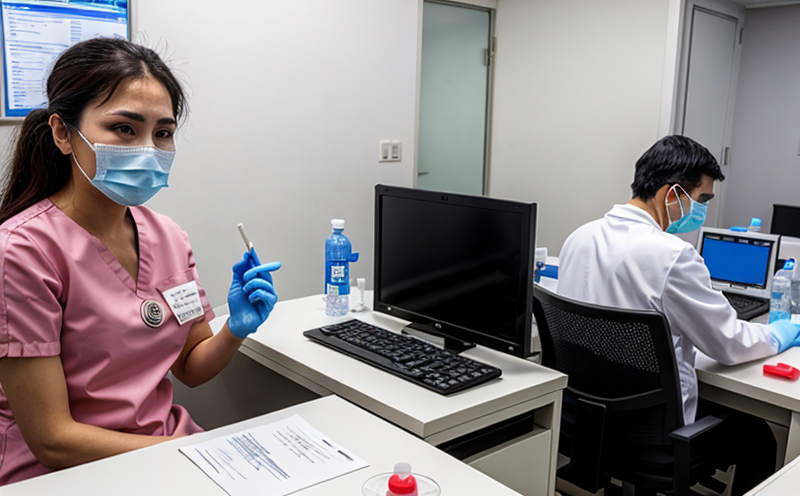Rabies Virus Antigen Detection in Veterinary Samples
The detection of rabies virus antigen in veterinary samples is a critical procedure in diagnosing and managing potential rabies exposures. This service focuses on identifying the presence of the virus using advanced serology techniques, ensuring accurate diagnosis for both public health and animal welfare purposes.
Rabies remains one of the most dangerous viral diseases affecting humans and animals globally. Prompt and accurate diagnosis is essential to prevent further spread through proper quarantine measures or euthanasia in endemic areas. Our laboratory employs a range of reliable methods tailored specifically for the detection of rabies virus antigens, including direct fluorescent antibody testing (DFA), enzyme-linked immunosorbent assay (ELISA), and rapid diagnostic tests.
The process begins with the collection of appropriate samples from affected animals, which may include saliva, tissue biopsies, or brain tissues. Proper handling of these samples ensures accurate results; hence, our laboratory follows stringent protocols for sample preservation to maintain viral integrity. Once received, preliminary screening is conducted using rapid diagnostic tests that provide quick initial results.
For definitive diagnosis, we utilize DFA and ELISA methods due to their high sensitivity and specificity. These techniques involve incubating the sample with labeled antibodies specific to rabies virus antigens before visualization under a fluorescent microscope or detection via an enzyme-linked colorimetric reaction, respectively. This approach allows for precise identification of viral particles even at very low concentrations.
Our team of experts ensures accurate interpretation of results by comparing them against internationally recognized standards such as ISO 15189 and WHO guidelines on rabies diagnostics. Reporting timelines are optimized to ensure timely communication of findings back to veterinarians, public health officials, or animal welfare organizations responsible for managing affected cases.
By leveraging our comprehensive suite of testing services, clients can rest assured that they receive reliable diagnostic information crucial for effective disease management strategies at both individual and population levels. This service plays an integral role in reducing the incidence of rabies transmission while supporting ongoing research efforts aimed at developing better prevention and treatment options.
Applied Standards
| Standard | Description |
|---|---|
| ISO 15189:2017 | International standard for quality and competence of medical laboratories. |
| WHO Guidelines on Rabies Diagnosis | World Health Organization recommendations for accurate rabies diagnosis. |
Eurolab Advantages
- State-of-the-art instrumentation and equipment used in every step of sample processing.
- Dedicated team of qualified professionals experienced in handling biohazardous materials safely and efficiently.
- Prompt turnaround times for results with minimal wait periods between submission and final report generation.
- Comprehensive quality control measures implemented throughout the testing process to maintain accuracy and reliability.
Environmental and Sustainability Contributions
- We adhere strictly to all applicable regulations regarding waste management and disposal of biohazardous materials.
- Efficient use of resources through optimized workflow design reduces energy consumption during operation hours.
- Eco-friendly packaging solutions employed for shipping samples between locations where possible.





